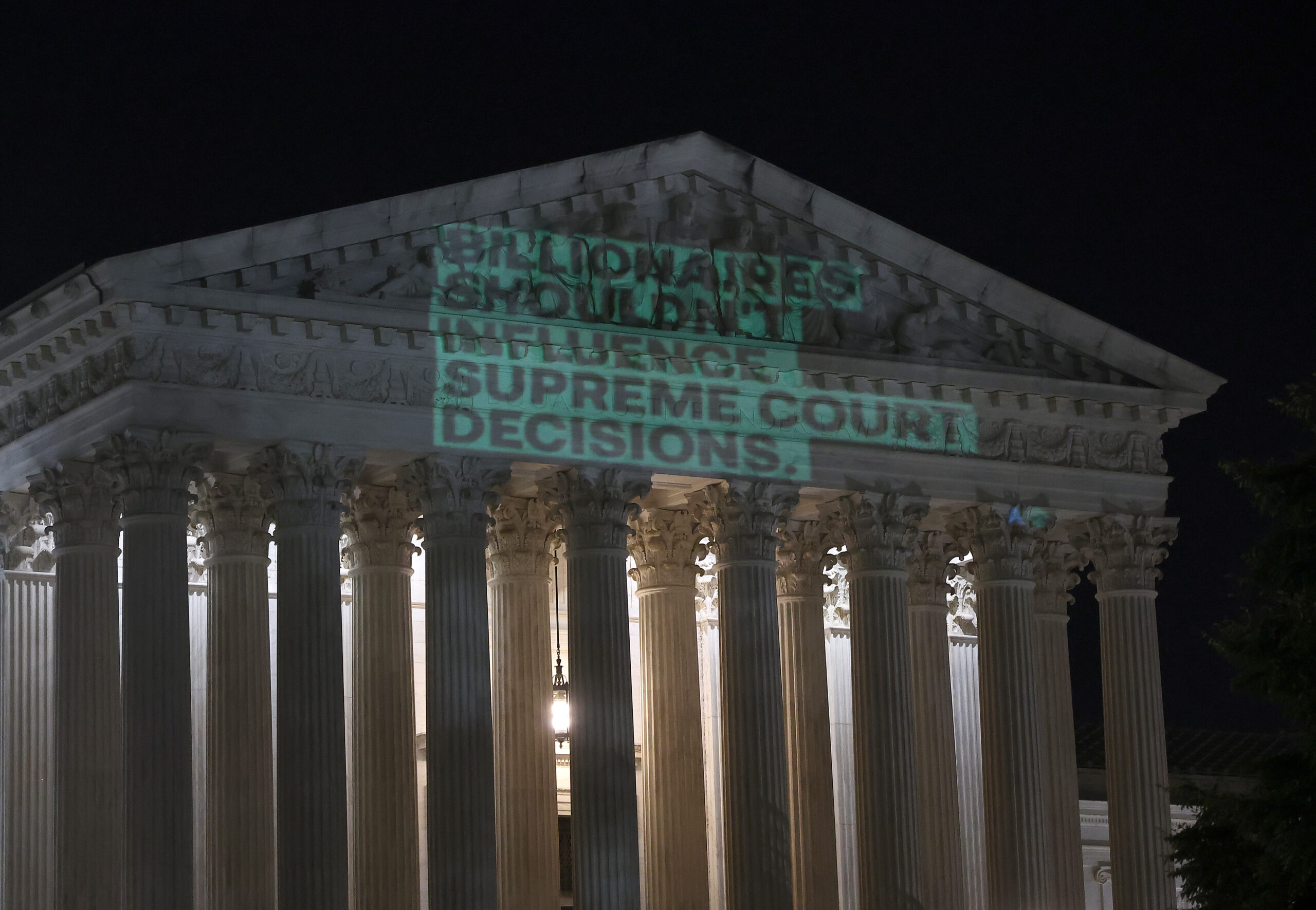Press Releases
Accountable.US Endorses Legislation to Create Supreme Court Ethics Accountability

Today, government watchdog Accountable.US endorsed the Judicial Ethics Enforcement Act, a major bill to establish an enforcement mechanism for investigating and addressing ethics violations by Supreme Court justices. The legislation was introduced in the House by Rep. Melanie Stansbury (D-NM) with co-leads Reps. Ilhan Omar (D-MN) and Jamie Raskin (D-MD) and original cosponsors including Rep. Hank Johnson (D-GA), alongside a similar bill being introduced in the Senate by Sen. Richard Blumenthal (D-CT) with cosponsors. The major bill is a critical step toward accountability after more than a year of troubling reporting on corruption and influence-peddling at the Supreme Court.
Since corrupt Justices refuse to cut off their cozy relationships with their wealthy pals, the Supreme Court corruption crisis requires an urgent solution — and the Judicial Ethics Enforcement Act is such a solution. Thanks to the strong leadership of these members of Congress, and the many partner organizations that have joined us in sounding the alarm, we’re one step closer to ensuring the Supreme Court serves everyday Americans, not justices’ billionaire buddies and special interests."
Accountable.US president Caroline Ciccone
The Judicial Ethics Enforcement Act would authorize the creation of an independent Office of the Inspector General within the judicial branch. The Inspector General would have the authority to investigate and address serious ethics violations by Supreme Court justices.
This bill comes in response to a growing corruption crisis at the Supreme Court, driven by countless ethics violations where justices failed to disclose luxury travel and unusual perks from wealthy benefactors like Harlan Crow, often facilitated by Supreme Court “billionaire matchmaker” Leonard Leo. Multiple Justices have been connected to these wealthy benefactors, who, in many cases, stand to benefit from favorable rulings by their friends on the bench.
Accountable.US also has endorsed Sen. Whitehouse (D-RI) and Rep. Hank Johnson’s (D-GA) Supreme Court Ethics Recusal and Transparency Act (SCERT Act), a complementary bill that would create a new code of conduct, set more concrete rules for recusal, create a new investigatory board, and increase transparency in instances with potential conflicts of interest.
###
